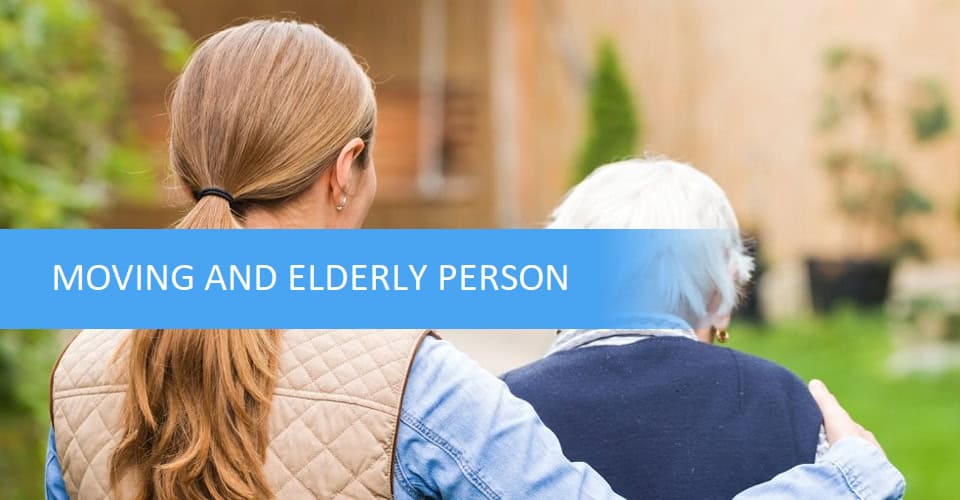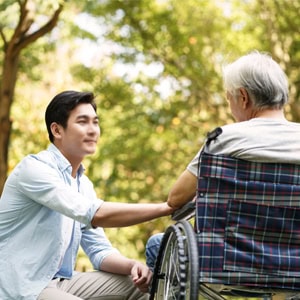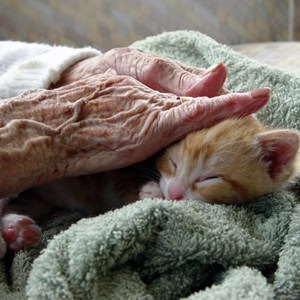Helping An Elderly Person Move House (And Why This Matters)

Moving home is usually a necessity rather than a choice for many older people. It is generally emotionally taxing and can be physically draining. Most elderly people need assistance when moving home, and thought and care must be given when assisting them.
Patience is essential when moving the elderly. Involve them in decisions when decluttering and downsizing. Associating meaning to giving away items helps the elderly to release them. Emphasize positive aspects of the move and always try to take pets with you. Make adjustments to the new home easy.
Although moving home is stressful and challenging for the elderly, there are some tips that can make it easier.
Reasons Elderly People Move And Why This Matters
 Elderly people are often forced to move for several reasons:
Elderly people are often forced to move for several reasons:
- Physical disabilities and limitations may result in the person being unable to cope with household chores, self-care, and activities of daily living.
- Mental confusion and declining memory cause some senior citizens to be incapable of living alone due to safety and health concerns.
- Financial restrictions may force the senior person to move in with family or a smaller home.
- Elderly people often become isolated as their family moves away for job opportunities or better living options. Isolation is not healthy for anyone and results in declining moods and anxiety. Therefore, it may be best for the older relative to move to a situation closer to family members or even into their home.
When people of any age are forced to move for some reason, they are apt to view the move negatively. This can trigger depression, making it even more difficult for them to make decisions. Depression results in physical apathy and low energy, which results in the aged person struggling to participate in the move.
Some senior people may be in the lucky position where they can choose to move and are not restricted by health or finances. Moving for them is a positive experience and one they can look forward to.
Make Moving Home Positive For The Elderly
There will always be some sadness when elderly people move home. It will help enormously to emphasize the positive aspects of a move, such as being closer to grandchildren or having an easier home to clean.
Buying a few new décor items or kitchen utensils will help to make a move seem more exciting and positive. If they are moving in with family, selecting small gifts for the family will generate some positive anticipation.
Relocating A Senior Person – Handle With Care!
 Moving is complicated at any time and is considered by researchers to be the third most stressful life event, beaten only by the death of a loved one and divorce. Moving home is therefore not to be taken lightly by anyone.
Moving is complicated at any time and is considered by researchers to be the third most stressful life event, beaten only by the death of a loved one and divorce. Moving home is therefore not to be taken lightly by anyone.
Senior people moving home are more likely to be downsizing which adds to the already considerable stress of moving. They deserve to be assisted with thoughtful patience and care.
If you are not a patient person or have a poor relationship with the parent, grandparent, or another relative who must move home, consider looking at alternative plans.
- Ask a friend or another more patient relative to assist.
- Hire the services of a company that specializes in relocating older adults.
How To Declutter And Downsize For An Elderly Person?
 Downsizing for elderly people who are moving is often radical. They commonly move from a large family home to a tiny unit or even a single bedroom. They have collected their belongings over decades, and sentimental attachments make it difficult to give up items.
Downsizing for elderly people who are moving is often radical. They commonly move from a large family home to a tiny unit or even a single bedroom. They have collected their belongings over decades, and sentimental attachments make it difficult to give up items.
- Make three piles, Keep, Throw, and Maybe. Relook at the Maybe pile and sort through that one again. Go over the Keep pile several times to check the person is happy with keeping all those items.
- Do not expect to do this task in a few days. Allowing the elderly person time to think through the decisions will help them feel more in control, less overwhelmed, and they usually make better decisions. It is best to start the sorting process as early as possible to reduce emotional distress.
- Always treat the elderly person with respect and care. Very often, younger relatives are impatient and cannot see the value of an item. The elderly person often feels that by discarding an item, they are losing their memories, a part of themselves and their history.
- Discarding items can be made easier if they are allocated to a family member or friend. The seniors will feel happier that their belongings will be treasured by someone else.
- Some elderly people are happy to donate some of their belongings to charity. They feel that their sacrifice is serving a good cause. Allowing the senior person to be involved in the donation may help them let go and reduce their stress. For example, if they donate goods for a charity sale at a children’s home, encourage them to go with you to deliver the donation.
- Photographing particular belongings that cannot be kept and putting these into an album can help the older individual release the item.
Unpacking For The Elderly Person In Their New Home
 The older person may feel disoriented and overwhelmed in their new home. It is essential to include them in unpacking their belongings in the new house. Even if they cannot contribute much, it helps them feel valued if you keep up a discussion as you unpack.
The older person may feel disoriented and overwhelmed in their new home. It is essential to include them in unpacking their belongings in the new house. Even if they cannot contribute much, it helps them feel valued if you keep up a discussion as you unpack.
Make a list of what is in each cupboard or drawer and stick it on the outside so that the person can find their belongings later. Stress worsens memory, and they will probably be unable to remember where to find items. They will adjust quicker to the new home if they can find their belongings.
If possible, try to arrange photographs, paintings, and knick-knacks in the same order they were at the senior’s previous home. This aids in making them feel at home as their belongings are displayed in a familiar fashion.
Recreating routines from the old home will help to familiarize the new house. Assist the parent or aged relative with finding new doctors, dentists, pharmacies, clubs, and churches. This will help them adapt to the new home quicker.
Pets Make Relocating Easier For The Elderly
 Many people automatically assume that if an older person is relocating, they should rehome their pet. Separating someone from their pet should be avoided as far as possible. Having a pet has been shown by numerous studies to be beneficial for the elderly.
Many people automatically assume that if an older person is relocating, they should rehome their pet. Separating someone from their pet should be avoided as far as possible. Having a pet has been shown by numerous studies to be beneficial for the elderly.
Human-animal interaction reduces isolation and allows the senior to connect with other people. Having a pet improves physical health by lowering blood pressure, stress, and even pain perception. It aids in establishing a calm, alert mind, providing stimulation and company for the elderly.
If possible, let the elderly person take their pet with them to their new home. It will make the transition easier, and there will not be grief from losing their pet.
Conclusion
Helping an older person move home must be handled with tact and compassion. They usually experience emotional distress and grief at the loss of their home. Try to make the relocation as positive as possible and include them in decisions.
We at Transport Executive can help you with your move, get a free quote now.
References
- https://www.uhhospitals.org/Healthy-at-UH/articles/2015/07/the-top-5-most-stressful-life-events
- https://www.agingcare.com/articles/benefits-of-elderly-owning-pets-113294.htm
- https://www.agespace.org/care/tips-for-downsizing
- https://www.aplaceformom.com/caregiver-resources/articles/moving-tips

